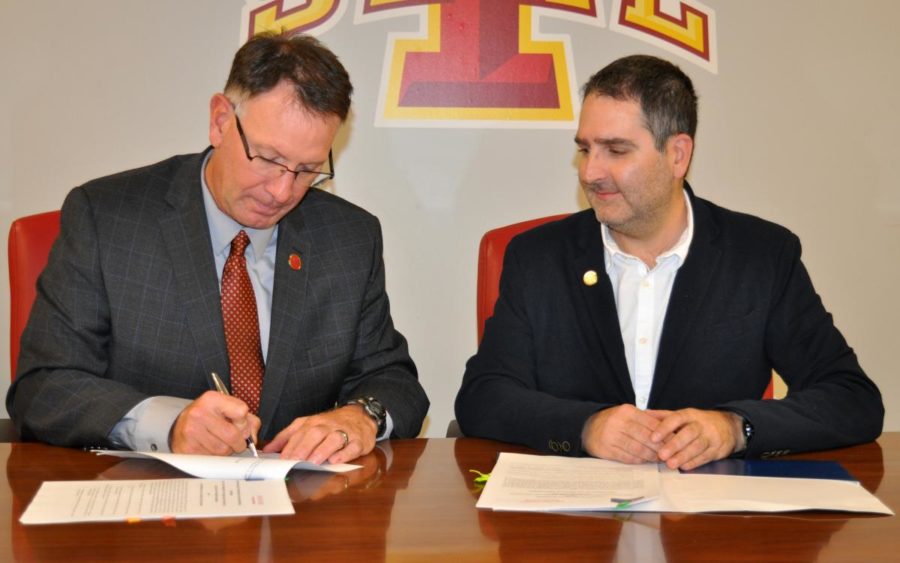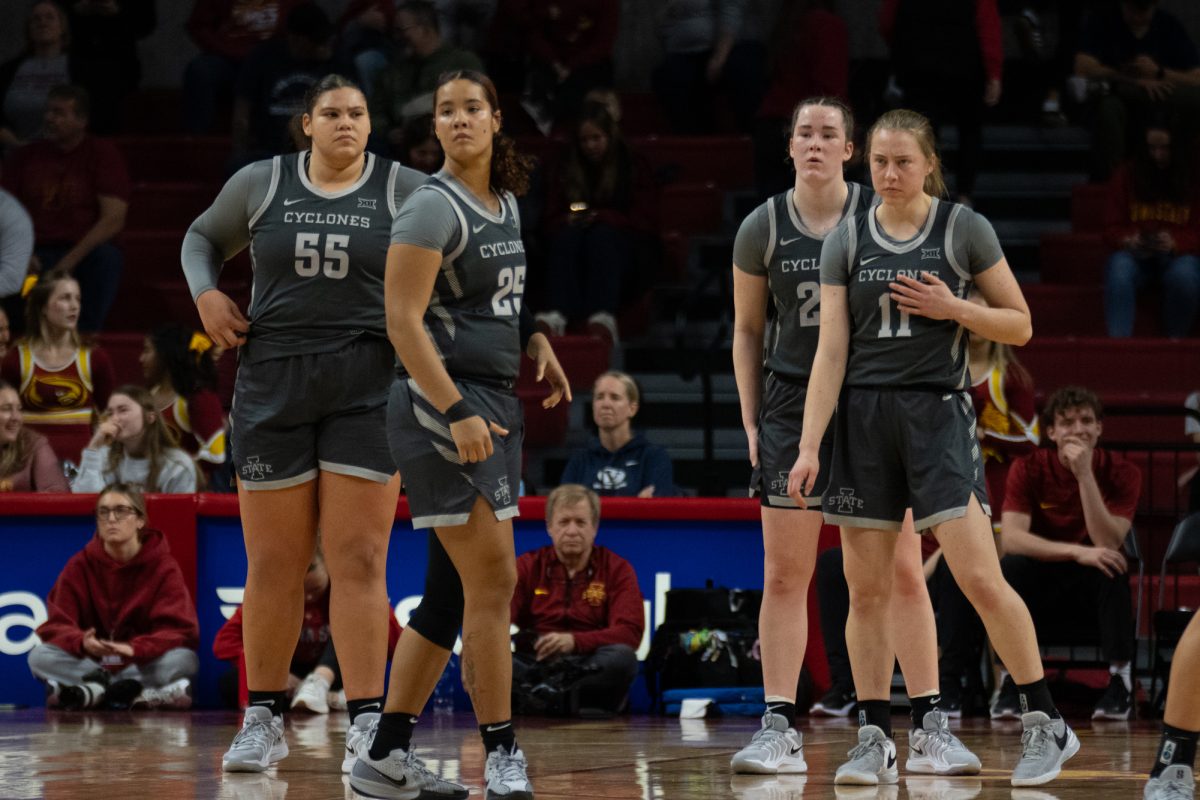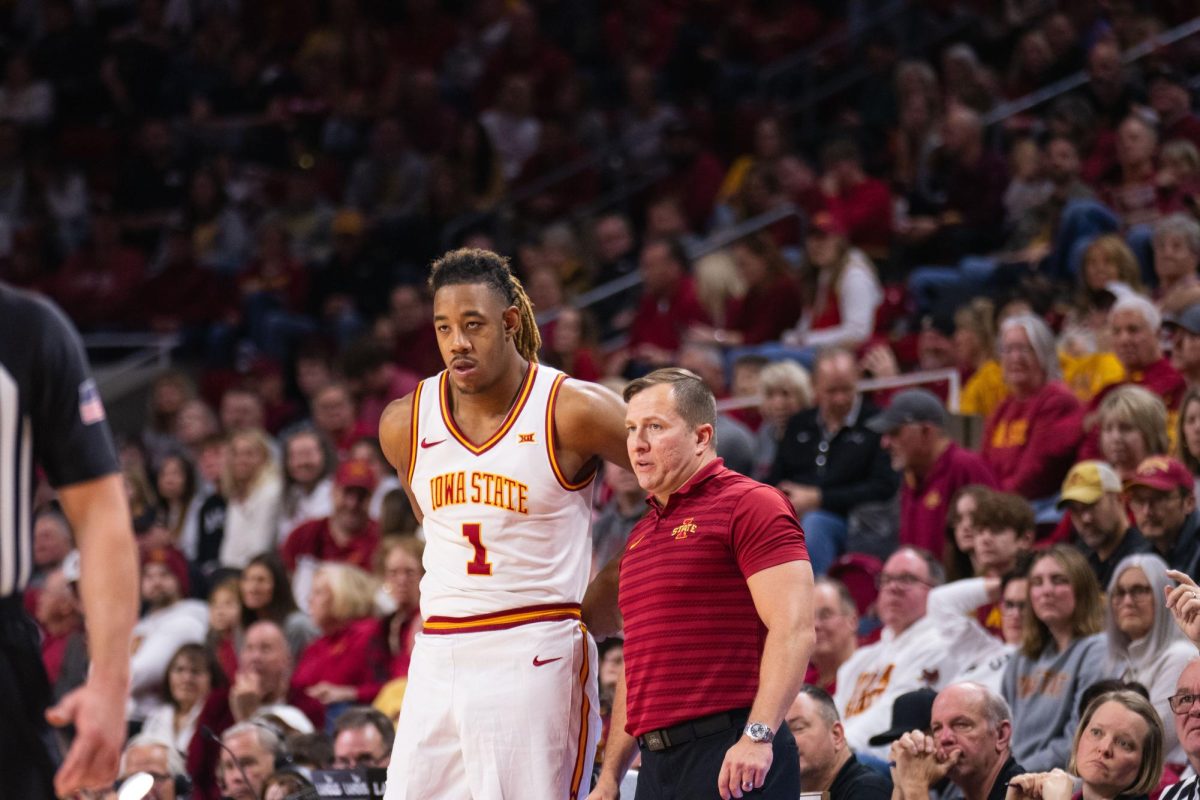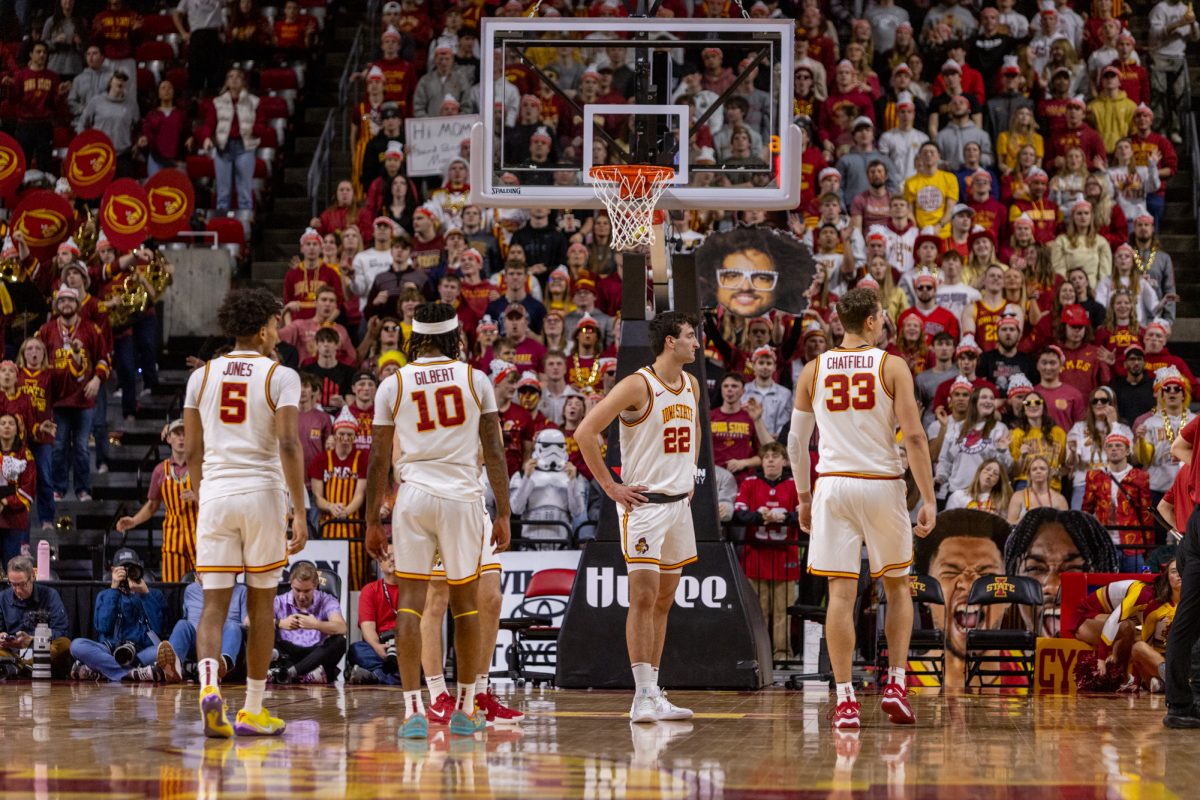Canary Islands added to foreign exchange programs for Vet Med
Courtesy of College of Veterinary Medicine website
Dan Grooms, the Dr. Stephen G. Juelsgaard Dean of Veterinary Medicine, and Dr. Sergio Romeo-Malanda, director of non-European Mobility and International Relations with the Universidad De Las Palmas De Gran Canaria, signed a Memorandum of Agreement.
November 5, 2019
The Iowa State College of Veterinary Medicine has entered an agreement with the Universidad De Las Palmas De Gran Canaria, located in the Spanish Canary Islands. The agreement opens up a student exchange program between Vet Med and the Spanish university.
Mercedes Serracin, coordinator of international programs and program assistant in the veterinary medicine administration department, said this agreement has been in the works since approximately 2015.
They originally corresponded with Universidad De Las Palmas through email, then met face to face with representatives at the NAFSA: Association for International Educators conference.
Alejandro Ramirez is the coordinator of international programs, interim assistant dean for academic and student affairs and assistant professor for veterinary diagnostics and production animal medicine department, and said the agreement works to create an equal student exchange between the two universities.
Ramirez said the program allows students from the Universidad De Las Palmas to come receive hands-on training at Iowa State, and in return, fourth-year veterinary medicine students may travel to the Universidad De Las Palmas De Gran Canaria for training.
Serracin said she estimates the program will begin sending approximately two students as early as summer or fall 2020 for a two-week rotation in the Spanish Canary Islands.
“What we do is we send a student over there,” Ramirez said. “[The student] pays tuition here. Students from Spain pay tuition over there and don’t have to pay tuition when they come here.”
Ramirez said the students are required to cover the price of housing and cost of living arrangements when traveling abroad. The estimated expenses for the students will be around $2,000 to $3,000 based on previous similar exchange programs, according to Serracin.
The Spanish Canary Islands are located off the coast of Morocco. Ramirez said the program allows students to interact with the more diverse species living on the islands as well as work with different clients and different languages, allowing for an immersive cultural experience.
“They have a lot of marine animals and obviously here in Iowa that’s not something our students get exposure to,” Ramirez said.
Ramirez said many of the College of Veterinary Medicine students have an interest in working with clients while using and practicing the Spanish language, and that this opportunity will allow them to immerse themselves in the language.
“I think it’s the same way when students come here — it’s a great influence,” Serracin said. “They are sharing the same activities and hands-on components. They might have another language. […] And the students become really good friends.”
The recent agreement with Spain adds to the several exchange programs the College of Veterinary Medicine already offers.
“Right now we have two students here from Poland,” Serracin said. “We have received students from Norway […] and France. Our students have been in England.”
Serracin said when students travel internationally they may also have the opportunity to work in animal rehabilitation. Students have had the opportunity to work with monkeys and watch macaws released into the wild after five years in captivity.
“I think by working in that experience they feel like we are doing something for the future of the fauna of that country,” Serracin said. “The students always come back with amazing stories.”
Students also may have the chance to work with different medical resources while abroad. Ramirez said the differing medical resources between the United States and other countries often leads to new insights on how procedures are performed at Iowa State.
“Sometimes even just suture material in other countries might have limits,” Ramirez said. “They might have to use something that might not be the perfect material […] but that’s all they have available.”
Before leaving for their trips, students often look for supplies from around the college to bring on the exchange as donations.
“They go out before the trip and try to secure supplies and donations and some resources to share,” Serracin said. “To [the students] it’s amazing there is so much needed that’s not there.”
The program is currently looking to work with Mexico and China to create additional abroad opportunities for students.
“All the time we are receiving requests for students to come to Iowa State because of the hospital,” Serracin said. “[Other schools] know how good the programs are for the students.”
Serracin said a common problem when developing these agreements is making sure there’s enough space to accommodate the incoming students.
Ramirez said all incoming foreign students for study abroad and exchange programs are nominated by their universities and are proficient in English.
A problem with the programs, according to Ramirez, is the decrease in the amount of Iowa State students participating, which is primarily due to student debt.
Ramirez said an increased awareness of student debt among veterinary medicine students has led to more caution when considering foreign exchange and study abroad programs.
Despite pending debt, there are available scholarships for students to help aid the cost of the programs.The college recently awarded 10 Hutton International Veterinary Scholarships to students in the last academic year to help with the cost of participating in these programs.
“We are trying to figure out more ways to be able to help support our students because we feel [the programs are] a valuable experience,” Ramirez said.
It is not uncommon for Iowa State students going overseas to want to go back following their completion of their program.
“We have a few people that really want to go back to Uganda in the different years that they have gone over,” Serracin said. “I think they realize that they have an impact in that area with what they know.”
Serracin said the agreements created with other universities are usually in effect for five years.
The most recent agreement with the Universidad De Las Palmas De Gran Canaria is set for four years due to restrictions set by the Spanish Canary Islands, according to Ramirez.







